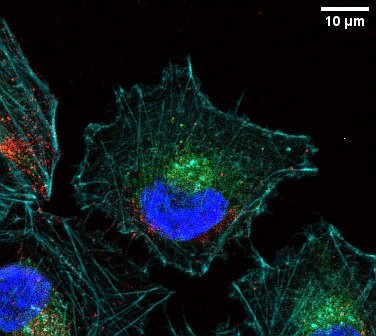Enhancing RNA Drug Delivery: Insights from University of Basel Study

A recent study conducted by researchers at the University of Basel has revealed that manipulating intracellular transport mechanisms can significantly enhance the effectiveness of RNA-based drugs, particularly antisense oligonucleotides (ASOs). This research, published in the journal *Nature Communications* on July 1, 2025, highlights a novel approach to improving the therapeutic potential of these drugs, which are crucial in treating rare genetic diseases.
Antisense oligonucleotides are synthetic molecules designed to interfere with the metabolism of cells by preventing the production of harmful proteins. They have shown promise in treating previously incurable genetic disorders, such as amyotrophic lateral sclerosis (ALS) and Duchenne muscular dystrophy (DMD). However, a significant challenge in the clinical application of ASOs is their limited efficacy; many fail to reach their intended targets within cells, which restricts their therapeutic potential.
The collaborative study, which included contributions from Professor Anne Spang at the Biozentrum of the University of Basel and scientists from Roche, utilized CRISPR/Cas9 technology to identify genetic factors affecting ASO activity. Dr. Liza Malong, lead author and researcher at Roche, stated, "We identified a large number of genes that either enhance or impair ASO activity, many of which are involved in the intracellular transport of ASOs."
The research team discovered that the gene AP1M1 plays a pivotal role in regulating the transport of ASOs from endosomes to lysosomes. According to Dr. Filip Roudnicky, senior co-author and researcher at Roche, "By selectively switching off this gene, ASOs remain longer in specific endosomes, increasing their chances of escaping and exerting their therapeutic effects."
In experimental models involving cell cultures and mice, this approach significantly improved ASO efficacy without necessitating an increased dosage. This finding underscores the importance of not only the drug itself but also the mechanisms of intracellular trafficking in enhancing therapeutic outcomes.
The implications of this research extend beyond RNA-based therapies. Professor Spang suggested that the principles discovered may also apply to enhancing the efficacy of other drugs and potentially in reducing the escape and replication of bacterial and viral pathogens within cells. "Shortening the residence time of pathogens in endosomes could be a new strategy in combating infections," she added.
The study provides a comprehensive overview of the genes that modulate ASO activity and highlights the critical role of intracellular transport dynamics. As the field of personalized medicine continues to evolve, understanding the interplay between drug design and cellular mechanisms will be increasingly important for developing effective treatments for genetic disorders and infectious diseases alike.
Future research will likely explore the broader applications of these findings, particularly in optimizing drug delivery systems and enhancing the efficacy of various therapeutic agents. The integration of genetic insights into drug development could pave the way for more effective and targeted treatments, ultimately improving patient outcomes in the realm of genetic medicine.
Advertisement
Tags
Advertisement





